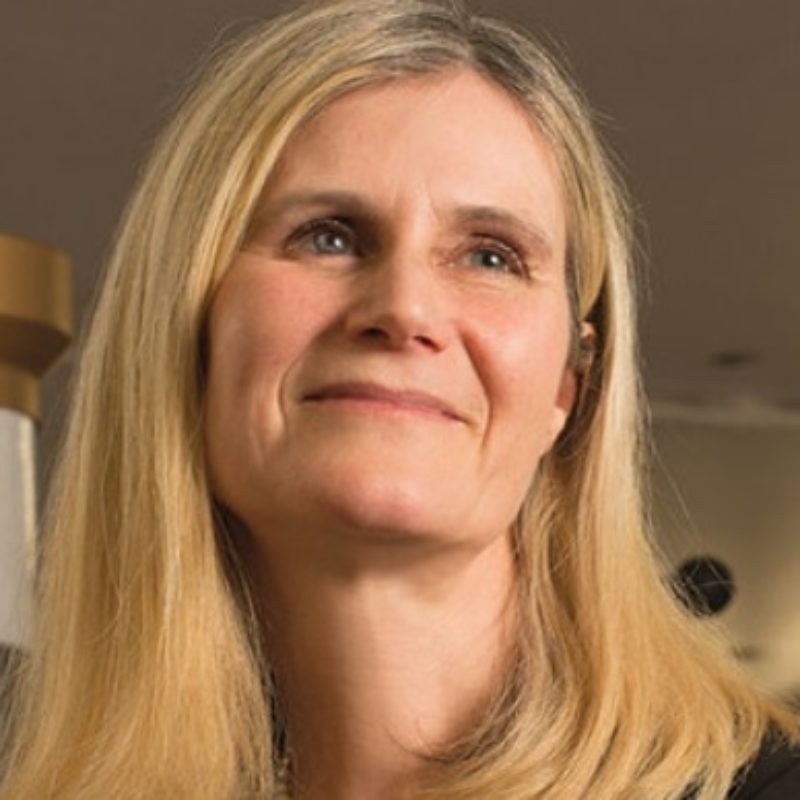Patricia J. Culligan, currently the chair and Carleton Professor of Civil Engineering and Engineering Mechanics at Columbia University, has been appointed the Matthew H. McCloskey Dean of the College of Engineering at the University of Notre Dame by University President Rev. John I. Jenkins, C.S.C., effective Aug. 1.
Internationally recognized for her expertise in water resources and environmental engineering, Culligan is a civil engineer whose research focuses on sustainable urban infrastructure, social networks and the application of advanced measurement and sensing technologies to improve water, energy and environmental management. She also is the founding associate director of Columbia’s Data Science Institute and has served as the vice dean of academic affairs for Columbia engineering.
“Trish is a distinguished scholar, research engineer and respected academic leader. She brings to Notre Dame a creative cross-disciplinary approach, demonstrated success and a commitment to seek ways in which technological innovation will truly serve humanity. She will be a wonderful addition to our senior leadership team and University community.”
— Rev. John I. Jenkins, C.S.C., University President
Culligan is currently co-directing a $12 million research network sponsored by the National Science Foundation that is developing new models for urban infrastructure to make cities cleaner, healthier and more enjoyable places to live. Through her research, she has developed several techniques to improve understanding of the fundamental mechanisms governing water and contaminant flows in soils and aquifer systems. She also is actively engaged in community outreach and citizen science programs.
Importantly, her work transcends a variety of other research fields, including urban design, policy, microbiology, ecology and geochemistry.
“Working within and beyond the academy, Trish has built a consistent record of excellence. Her broad technical expertise, deep appreciation of the liberal arts, commitment to helping the underserved and educating the whole person, and honed leadership ability make her an ideal candidate for the deanship. In addition, she is committed to further building programs and partnerships across the University and local community as well as with government and industry. We are thrilled that she accepted our offer to serve as dean.”
— Thomas G. Burish, the Charles and Jill Fischer Provost at Notre Dame
As dean, Culligan will lead the College of Engineering’s nearly 160 faculty members, who oversee undergraduate and graduate education for nearly 1,900 students along with a wide array of research programs
Culligan earned her bachelor’s degree in civil engineering from the University of Leeds as well as a master’s degree in philosophy and a doctorate in engineering from the University of Cambridge. She also earned a diploma in language, literature and civilization (with honors) from the Université d’Aix-Marseille III. She has served on the National Academies Nuclear and Radiation Studies Board as well as on the Board of Governors of the ASCE’s Geo-Institute. She has also chaired the National Academies Standing Committee on Geological and Geotechnical Engineering.
She is the author of seven books, seven book chapters and numerous journal articles, publications and reports. At Columbia, she has received more than $20 million in research funding.
“During my visits to the campus, I sensed the strong enthusiasm and momentum in Notre Dame’s engineering programs,” Culligan said. “The faculty has a distinguished reputation for engineering and scholarly excellence, and I am honored to be offered this opportunity to contribute to their continued success and growing stature.”
Burish praised the search committee that recommended Culligan from among a number of eminently qualified candidates considered during a national search.
“The search committee members were selfless in their efforts to identify and recruit a strong field of candidates for this crucial position,” Burish said. “The members represented the college and University well. We all owe them a great deal of gratitude.”
— Patrick Gibbons, Office of the Provost
